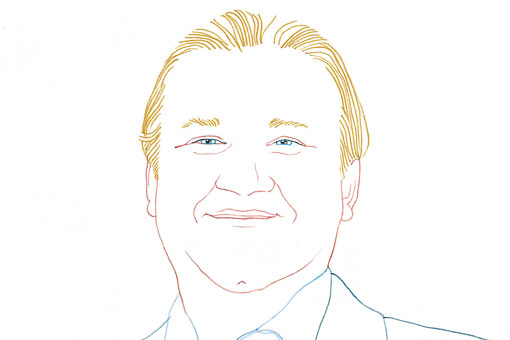I had my first crash course in politics in 1989. I was 11 years old, scared and surrounded by bombs and gunfire. The city of San Salvador was under attack in what would become the last push from left-wing guerrilla forces of the Frente Farabundo Martí para la Liberación Nacional (FMLN) to take the country. They failed, but the event helped me realize—and in some cases even see face to face—the multitude of fellow Salvadorans who shared convictions that I didn’t entirely comprehend. In 1992, El Salvador gave the world a lesson in peacebuilding and reconciliation after the first Alianza Republicana Nacionalista (ARENA) president, Alfredo Cristiani, and FMLN leadership signed a peace accord in Mexico City putting an end to the 12-year civil war. This became my first lesson in democracy and institutional responsibility.
The second lesson in politics (more importantly, in democracy) came several years later in 1995 when, during a group visit to the National Assembly, I came across an ex-FMLN leader I had seen outside my house on that cruel morning in 1989. He was then serving as a freely and democratically elected congressman.
Over years of introspection, I’ve recognized that perhaps the combination of these two experiences is what has led me to the conviction that in Latin America, and especially El Salvador, democracy is “the only game in town,” even though certain regional trends seem to indicate otherwise. I knew then and there that I would work in strengthening democracy wherever I was given the chance. As time passed, I came closer to political participation, first through activism in ARENA’s youth sector. Later, upon completion of my undergraduate and graduate degrees, I became active as part of the leadership of the department of San Salvador.
Although unsuccessful as part of the roster for San Salvador’s City Council in 2003, I remain active in politics. I now find myself the youngest member of ARENA’s National Executive Committee. To make matters more interesting, this newly elected party leadership is tasked with managing the institutional transition from a majority party with 20 years in power to the main opposition party to the FMLN government led by President Mauricio Funes. My role is to coordinate the 122 ARENA elected mayors nationwide.
This short but intense path in political participation gave rise to many important lessons that I believe are applicable to many countries in the region. The first is that youth and political participation rarely seem to coincide. El Salvador’s 2009 election was the first time that Salvadorans born in 1992, the year the war ended, were able to vote. According to the National Census and Statistical Office, 2009 would include 120,000 new voters. Only 17 percent of these new voters had bothered to register.
After several months talking to youth nationwide, the reason most frequently mentioned for political apathy is a lack of representation or identification with political leaders. This harsh reality poses one of my generation’s largest challenges: reinstating credibility and true representation in a new, pragmatic political leadership. I firmly believe that politics hasn’t failed. Politicians have. As long as young leaders committed to the ideals of democracy, freedom and equal access to opportunities remain on the sidelines, we’ll never progress. For many years I’ve been told that youth is the future. I disagree. We are the here and now. Unless we decide to fill the void created by the previous generation in Latin America, we won’t have anything left worth fighting for.
There’s never an ideal moment to become involved in politics. There will always be a certain fear and animosity toward becoming actively engaged in political leadership. I assumed the challenge after ARENA lost presidential elections last year. Tensions rose and thousands of party members looked to the new leadership for comfort and guidance. We came across hard obstacles, like deposed congressional representatives and traditional leaders who denounced our inexperience.
Building a new inclusive party system that returns to the roots of defending civil liberties and peace is not just a matter of experience but of a collective desire for progress. Such a system must be based on effective representation of the majority of the population, including less-privileged citizens and a belief in the importance of a unified and integrated Central America. Only by doing so can we build a less polarized El Salvador founded on consensus and a shared vision.
My generation can no longer rely on democratic institutions that only address problems through traditional means. Although the use of technology and social networks is an important component of motivating new generations toward political participation, I firmly believe that the problem is more structural. Young leaders must be taken into consideration in the decision-making process to alter how politics work.
My generation demands pragmatic solutions to real problems. A pragmatic approach would help us find the correct mix of creative and innovative solutions. This is more pressing than ever because the erosion of democratic values in many of the region’s countries has sharpened public discontent over crime, access to public services, education, health, and quality of life. The success of many local governments in addressing this discontent illustrates the direction in which our national societies should be going.
Political parties must fundamentally change. And Latin America’s youth have a key role to play by participating at every level of politics, including municipal and legislative. They must lose their fear, or apathy, and get involved; our duty is to demand space for participation in the decision-making process.
Countries that have moved beyond polarization to create strong political parties, like Mexico, Chile and Costa Rica, point the way for the rest. The strength of political parties, is a hallmark of the strength of a democracy. In contrast, weak party systems empower authoritarian regimes.
If the 1990s were the decade of the NGOs, it is necessary to make this next decade one of political parties. We are not the future; we are the here and now and must therefore defend our freedoms and democratic institutions to reduce poverty and generate a less polarized and more stable Latin America. We have been spectators for too long. It’s time to act.




